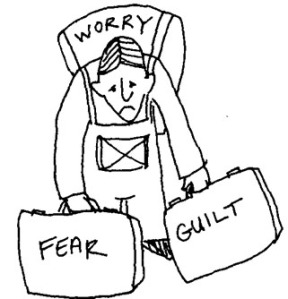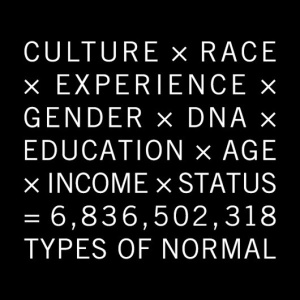Today, my friend @jillsmo of Yeah. Good Times. wrote a brave and thoughtful blog post that resonated with me. I started to leave a comment on it, but my comment got too long. (I know, right?) So, I left her a quick note and came over here to say the rest.
*DEEP BREATH*
I sometimes wish Helene were “normal.”
*EXHALE*
When I wish for “normal,” what I mean is that I wish Helene could have the same sense of humor, the same loving disposition, the same sweet smile, the same strong will that she now has right now — without speech delays, motor skills deficits, sensitivity to noise and stimuli, obliviousness to or irritation by her peers, tremendous anxiety attacks that consume her, a paradoxical need to hurt herself again (and again) after she feels pain, or the rollercoaster sleep schedule.
When I wish for “normal,” it is a short-hand way of saying I would gladly trade Helene’s doctor’s appointments, therapies, “social skills” classes, IEP teams, agency services, and rigid daily life for soccer games, dance classes, music lessons, the ability to travel and the freedom not only to have, but to enjoy, spontaneity and flexibility.
And, yes, I want these things as much for me and for our family as I do for Helene. Why wouldn’t or – more to the point – shouldn’t I?
But, wishing for “normal” does not mean I wish Helene wasn’t autistic. If someone handed me a pill tomorrow that would “cure” Helene’s autism, I would be simultaneously terrified to give it to her and to not. How do I not magically remove her challenges if it is within my power to do so? But, what if – what if – giving her fluent speech, gracious movement, regular sleep, a neurotypical response to pain, peer-aged social engagement or emotional stability, I simultaneously removed everything about Helene that makes up her personality – the very essence of what I love so much about her it hurts?
Why don’t I utter a desire for “normal” aloud? Why do I get upset when other people say to me, “Don’t you wish your daughter was ‘normal’?”
When I don’t say it, it’s out of fear and guilt.
I have two fears. First, I am afraid for myself. Second, I am afraid for the parents and children whose lives are touched by ASD. I am afraid that if I express this thought out loud, people in the ASD community, who have very strong opinions about what is “right” or “wrong” when living as or with a person on the spectrum, will attack me. I already feel so excluded and marginalized – on my own behalf and on my daughter’s – I don’t think I can take being rejected by the only community in which my daughter and I belong – objectively speaking, anyway. Second, I am afraid that if I express this thought out loud, I inadvertently send the wrong message to parents and children touched by ASD. My wish for “normal” is not a permanent state of mind for me. It’s not what I desire when I throw a penny in a fountain or blow out birthday candles or even when I read articles on developments in treatment of ASD. It is a recurring but fleeting thought that crosses my mind particularly when Helene is frustrated or hurt (physically or emotionally) by the challenges that life brings her. It is the manifestation of desire that I think most parents have in response to the difficulties confronting their children – I want to make it better / easier / safer.
Now, the guilt. My introduction to the autism spectrum community came with a barrage of messages about acceptance and advocacy: accept your child for who she is, and never stop pushing for her acceptance in and by broader society. These are good, important messages, because much of what I want for Helene will come from others understanding, accepting and integrating Helene into all aspects of society. I believe that these are my responsibilities as part of parenting a child on the spectrum. But, what I didn’t hear (or hear enough) about was how to address my own feelings about being a parent under these circumstances. Intuitively, I know that I am entitled to have feelings about this – both positive and negative. Being a parent is not a walk in the park under even the most idyllic of circumstances, because it inevitably involves the desire – or even the need – to control another human being. Still, the message I heard more often than not was that anything other than total and complete acceptance of my role and my child was failure – as a mom, as an advocate, as a human. So, when I find my mind wandering toward the forbidden wish that my daughter not face so many challenges and obstacles, I immediately feel shame. I feel as though I’ve betrayed her. And, I feel as though I betray the broader ASD community.
But, fear and guilt are not positive, healthy emotions. Walking around with that darkness does not make me a better parent for Helene – or Nate. It doesn’t make me a better member of this family. Quite the opposite, it makes me less effective, less convincing, and less able, because fear and guilt diminish the psychic energy necessary to be the advocate I do need to be; those feelings undermine my ability to create a positive space for Helene both within and outside the ASD community.
In fact, when I read Jill’s blog post, I burst into tears, because I felt relieved. I felt redeemed. I felt successful.
Why? Because, I happen to think Jill is a wonderful mother. I think she is an outstanding advocate not only people on the spectrum but for their parents and caregivers. And, because I respect her, hearing her say that she sometimes harbors the same feelings made the weight of all my bottled-up guilt and fear so much lighter. It made me believe that I am not alone. It made me believe that I’m not a bad parent. Do you know how empowering that is? Just think about that for a minute. Whether you are NT or on the spectrum, what motivates you more toward success: fear or positive reinforcement? If you are on the spectrum, did you find your relationship with your parent(s) more productive when they were anxious and filled with fear and worry or when they were able to just be with you?
So, what’s with my double standard? Why do I get upset when people ask me whether I wish Helene were ‘normal’? The most basic explanation is that I know what I mean by ‘normal’; I don’t know what you mean. That question is so very loaded by the vagueness of “normal” that I cannot possibly answer with a simple “yes” or “no.”
That makes me defensive, especially when talking to someone I don’t know. I feel like I have to explain and justify my daughter’s existence and my part in it. If you ask me this over a cup of coffee, when I’ve invited you to talk to me about raising children, I will feel comfortable enough to tell you the answer is “yes” (if you mean to ask me whether I wish life brought Helene more rewards than challenges); the answer is “no” if you mean to ask whether I wish Helene was not autistic or whether I am ashamed of, embarrassed by or angry at my daughter for being anything that she is. If you ask me this while she’s in the middle of a meltdown caused by too much sensory input or on her 55th rendition of “Itsy Bitsy Spider” to stave off the anxiety, I’m not going to take the time to make sense of ambiguities, I’m going immediately on the defensive, I will assume you mean “don’t you wish your life didn’t suck so bad,” and I will unleash my inner advocacy-mom-ninja. No, my life doesn’t suck, and neither does Helene’s, just because sometimes our lives are more frustrating than others’.

Remember me? Yeah.
Which brings me back around to fear and guilt. Do you know when people ask me the “normal” question the most often? It’s not over coffee. It’s not a question asked out of sympathy, empathy or even good will. It’s asked more like an accusation, making me simultaneously wish that you perceived my daughter as “normal” and feel shame that I have, in fact, wished for “normal.” It’s a horrible, confusing, depressing feeling, and instead of being able to reflect and answer that question in a way that would really advocate for Helene, I just lash out at the inquirer, which kind of proves his/her intended point.
So, I don’t say it. You don’t say it. It doesn’t get discussed. Until people like Jill are brave enough to put it out there — to risk the disappointment and anger of vocal members of the community, to risk being misunderstood – for the sake of reaching the parents out there who need to talk about it so that we do a better job of taking care of ourselves and parenting our beautiful kids.
Thank you, Jill, for making me brave enough to post this. Thank you to everyone brave enough to share in response.




*sniff* I think there’s something in my eye… *sniff* excuse me… *runs off*
((((((you)))))
This is a very moving piece. Thank you for sharing. I can identify to some extent, although the challenges my family has faced are different. Parenting and guilt seem to go hand-in-hand.
Thank you for the kind words. I honestly hope *every* parent can identify with what I’ve written. What I want for Helene isn’t – at its foundation – all that much different than what I want for Nate (my son, who is not on the spectrum): to help each navigate his or her way through the world with as few literal and figurative bumps and bruises as possible. I don’t think that’s different than what *any* parent wants for a child, and I think it’s important for all parents – but especially those who face some additional forks or potholes in the road to adulthood – to remember that no matter what map we follow, we’re trying to reach the same destination. 🙂
If I haven’t said it before, Prof, let me do so now: you’re human. Take it from an old-timer (autism, class of 1996): There is no perfect here. There is no normal. Every family’s path is different. You are entitled to have mixed feelings. You are damn-well entitled to give differing answers based on who is asking the questions and when they are asked. This doesn’t mean you’re unfaithful. This doesn’t mean you’re lying or inconsistent. It does mean that your life and feelings are—and will likely always be—all over the blessed map.
I read somewhere once that “we” are “an isolated community within an isolated community.” “Our own” will judge us harshly at times if we don’t subscribe to the newest fix-it fad. Some of the biggest fights Patty and I have had with anyone have been with other parents of children with autism. Yes, that double-sucks!
You’re neither angel nor devil: you’re human. You’re going to do just fine. Helene is going to do just fine. The rest of the family is going to do just fine. Go with the flow, not the direction that that looks or sounds good to someone else—you know your family better than they do.
300 deep breathes a day. . . .
In … out …. in … out. 😉 Thank you, George.
I am “all over the blessed map,” and I shouldn’t need permission from others to be there (or not be there). I know. It’s nonetheless comforting to know it’s out there in some corners.
I’ve lately been reading a lot of writing by autistic adults who very harshly criticize their parents or teachers’ efforts to “help.” I desperately want to read the thoughts of these writers, because there’s so much important information in there – any chance to have the benefit of 20/20 hindsight seems like such an enormous advantage over today. But, these writers often leave me feeling as though I am damned if I do and damned if I don’t in almost every decision I make (and I *have* to make them – I’m her mom) about Helene’s education, therapies, diet, medical treatments.
Eh – I’m going to rant again. But, that was the frame of mind I was in when I read Jill’s post, and I wanted to create another small corner of the Internet where a mom/dad/caregiver could find some affirmation that what s/he does is not hopeless, not thankless, not designed for failure; that moments of despair and longing are okay, are “normal,” are part of the process.
Now, what is this human of which you speak? 🙂
[old man smilin’ here!]
Guys like us, we fly by the seat of our pants in the driving rain with a blindfold on and one hand tied behind our back. Most of the time it seems that the task we’ve been given can’t be accomplished: nobody could get a job like this right. That’s what it seems like during the dark hours—and there are damn sure plenty of those.
But is your child healthy? Do you get a sweet smile more than once a day? Do you see growth—even small growth? Does your child enjoy their life? If so, you are doing your job and doing it right! Now smile, damn it, smile and take your darned self off the hook: you’re gonna win this one!
Well said. The quest for “perfect parenting” makes all of us (parents) feel this confusion from time to time, no matter what our families circumstances involve. I think, from the conversations we’ve had and from the posts I’ve read here, that you are an amazing person who is doing an amazing job raising both of your children. Don’t ever let those “perfect” parents convince you otherwise.
Thank you so much, Heather. I truly appreciate it. I try every day to do my best – most days, I think I do. Some days, maybe not so much. 😉 But, “perfect parent”? No aspirations for that. Was there ever a greater oxymoron? *snicker*
There’s just got to be a good one liner to use for THAT question, without resorting to some snarky remark about their own child/parenting/life etc. I just haven’t worked it out yet. I think most parents want the best for their kids no matter who they are or what circumstances they find themselves in. Parenting is the biggest challenge of our lives – no question.
I find it interesting though that before I found myself engaged in the autism community, I was taking my boy to an early intervention playgroup where there was a diverse range of disabilities but all the kids had a visual disability. There were kids there who were totally blind but with no intellectual challenges, kids who had a form of albinism, kids who were deaf/blind, kids who had no diagnosis but would require 24 hour care for the rest of their lives, kids who passed away from their disabilities during the time we attended the group. The parents in this group loved their kids, wanted the best for their kids, did not dismiss or judge another parents decision to pursue a particular avenue of treatment. I did not come across the really divisive, judgemental, political positioning on parenting a child with a disability until I hit autism world.
Don’t get me wrong – I’ve found the most wonderful friends in this world. People who will be there for you and your kids when you need them, people who challenge you to keep your head together, who give you perspective, who dry your tears and make you laugh on a bad day, who help you to look forward with hope.
We are allowed to feel sad, guilty, worried, embarrassed, worn out and tired along with all the good stuff. Just like every other parent. Not acknowledging how we feel leads us into isolation, unhappiness and depression. A great post!! Thank you!
Shoot! How did I miss this until just now! I’m so sorry …
Thank you so much for this kind and sane words. You’ve hit the nail on the head. Finding your post this morning was like getting an expected parcel. 😉
Awww! Geeez!! Thanks!!!
I am speechless. Thank you.
Even talking about things with my husband, I edit myself or add, “not that I would change anything about him.” That’s lame. I need to stop that crap. Excellent post, oh brave one.
I never let the Hubs read my blog posts while I am writing them, but I do let him read once I am finished — he proofreads me, but also I like to be sure nothing I’m posting publicly makes him uncomfortable. I was very nervous about letting him read this post, because sometimes he and I have very different views about what Helene’s future looks like. But, I was so very glad I did, because we ended up having an excellent, candid and comforting conversation. Editing yourself isn’t “lame” – I am the pot calling the kettle black here, but try not to be so hard on yourself. But, the next time you do it, think of this and don’t. You may find your husband is relieved, because even if he doesn’t agree with you, at least it’s an invitation to talk about stuff. 🙂
Reblogged this on ProfMomEsq and commented:
I wrote this post about 6 months ago, but as I am struggling through this year’s IEP meeting and gauging the temperature of the autism blogging pool, it felt like a good time to rerun it – original typos and all. If you missed it the first time, LUCKY YOU! It’s back! If you didn’t, I think it’s worth another read and a moment to reflect. I’ll be back with original material as soon as I crawl out from under the IEP more appropriately titled “War and Peace.” 🙂
I dont know why I havent been following you, but I am now. This is such a great post.
I’m like the ninja of blogging. I like to sneak up on people. 🙂 Thanks for the compliment.
Thank you for re-posting this piece. It is just plain wonderful.
I can say that I love my son with all of my heart but sometimes wishing for him to have fewer challenges in life is nothing I am ashamed of. This does NOT mean that I would like him to be any different from how he is now. But isn’t it normal that we wish for our kids to have it as easy in life as possible?
Thank you, Joy. What you wrote makes me feel understood, and that such an amazing feeling.
Beautiful post. I loved the way you shared your emotions and I am glad I read this.